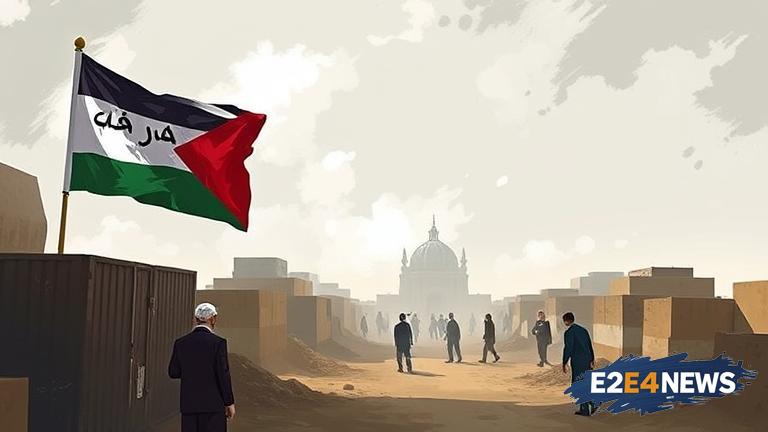The Israeli government has announced a series of limited aid measures for the Gaza Strip, in an effort to alleviate the humanitarian crisis that has been unfolding in the region. The move comes amid growing global condemnation over the Israeli blockade, which has led to widespread starvation and poverty in Gaza. The aid measures, which include the provision of food and medicine, are seen as a response to the mounting international pressure on Israel to lift the blockade. However, critics argue that the measures are too little, too late, and that they do not address the root causes of the crisis. The Gaza Strip has been under an Israeli blockade since 2007, which has severely restricted the movement of people and goods in and out of the territory. The blockade has had a devastating impact on the economy and living standards in Gaza, with poverty and unemployment rates soaring. The humanitarian crisis in Gaza has been exacerbated by the COVID-19 pandemic, which has further strained the already fragile healthcare system. The international community has been calling on Israel to lift the blockade, citing the need to protect the human rights of the Palestinian population. The United Nations has warned that the blockade is causing irreparable damage to the economy and infrastructure of Gaza, and that it is having a disproportionate impact on the most vulnerable members of the population, including women and children. Despite the international condemnation, Israel has maintained that the blockade is necessary for security reasons, citing the threat posed by Hamas, the Islamist militant group that controls Gaza. However, critics argue that the blockade is a form of collective punishment, which is prohibited under international law. The limited aid measures announced by Israel are seen as a attempt to mitigate the humanitarian crisis, but they are unlikely to have a significant impact on the ground. The aid package includes the provision of food and medicine, as well as the repair of infrastructure, such as roads and bridges. However, the package does not address the underlying issues that are driving the crisis, including the blockade and the occupation. The international community has welcomed the aid measures, but has also called on Israel to take more decisive action to address the crisis. The European Union has urged Israel to lift the blockade, citing the need to protect the human rights of the Palestinian population. The United States has also called on Israel to take steps to alleviate the humanitarian crisis, but has stopped short of calling for the blockade to be lifted. The situation in Gaza remains dire, with thousands of people struggling to access basic necessities, such as food and medicine. The limited aid measures announced by Israel are seen as a drop in the ocean, and are unlikely to have a significant impact on the ground. The international community must continue to pressure Israel to lift the blockade and address the root causes of the crisis. The humanitarian crisis in Gaza is a stain on the conscience of the international community, and it requires a comprehensive and sustained response. The limited aid measures announced by Israel are a step in the right direction, but they are only the beginning. The international community must continue to demand that Israel takes more decisive action to address the crisis, including lifting the blockade and addressing the underlying issues that are driving the humanitarian crisis. The people of Gaza deserve nothing less than a comprehensive and sustained response to the crisis, and it is the responsibility of the international community to ensure that this happens. The situation in Gaza is a complex and multifaceted one, and it requires a nuanced and comprehensive response. The limited aid measures announced by Israel are a welcome development, but they are only the beginning. The international community must continue to work towards a comprehensive and sustained solution to the crisis, one that addresses the root causes of the humanitarian crisis and provides a lasting and durable solution for the people of Gaza.
